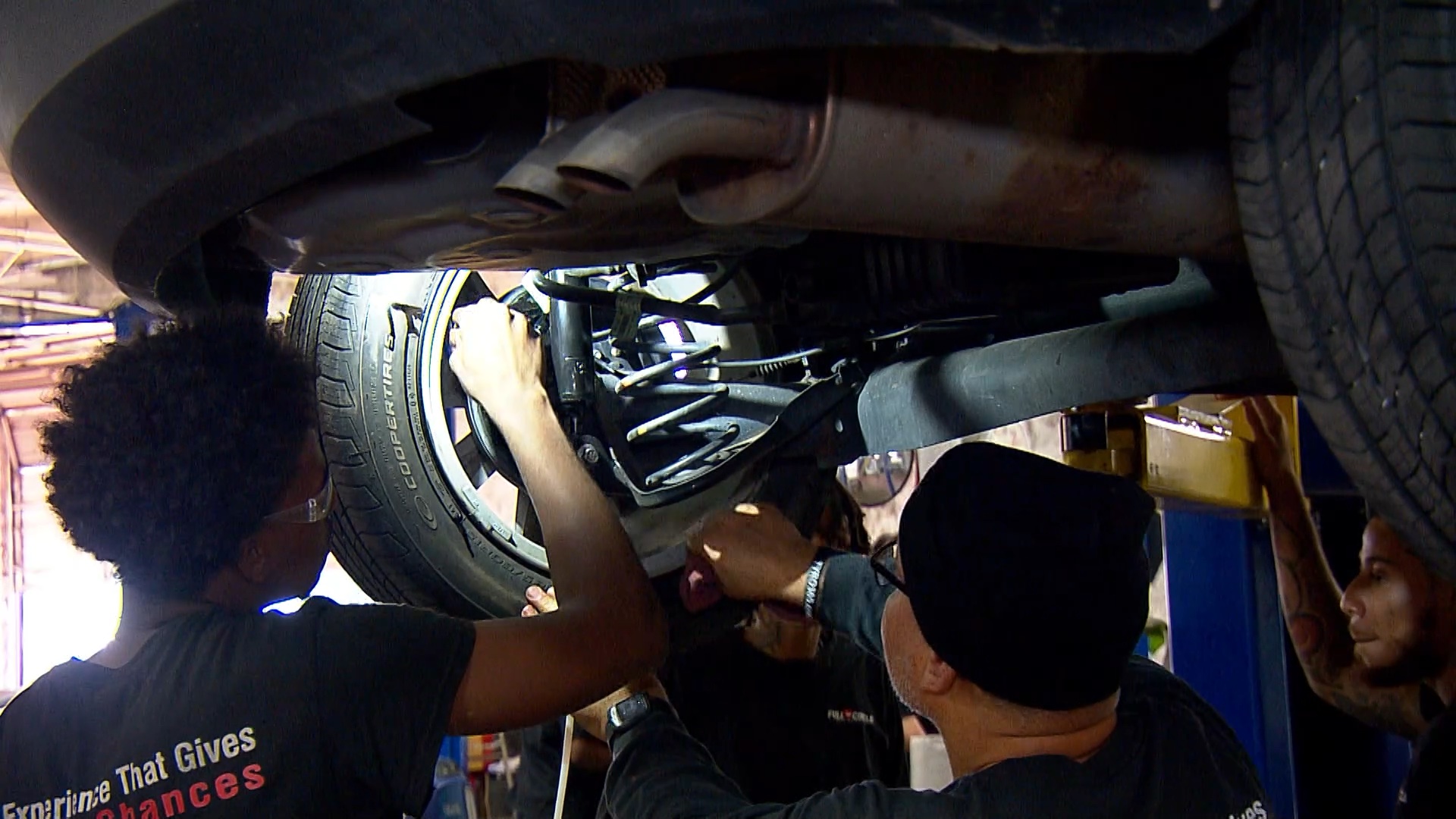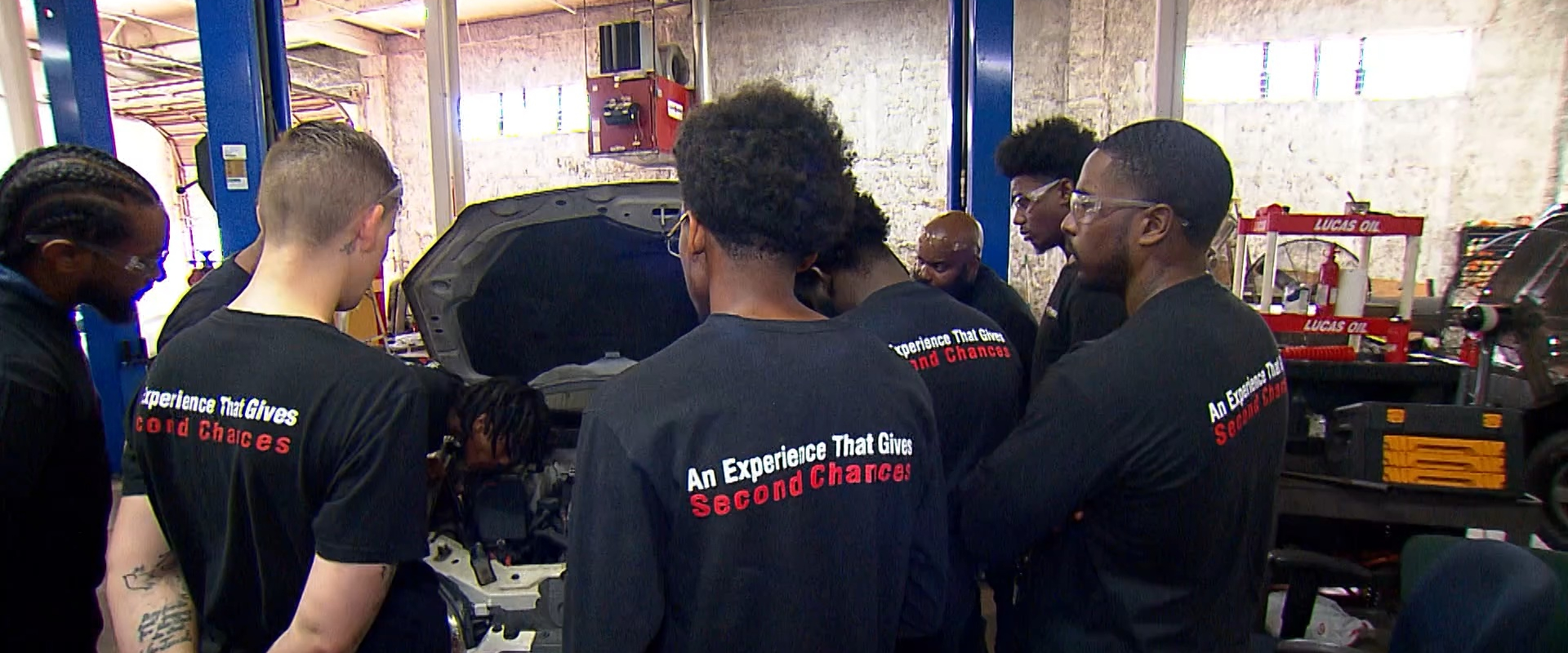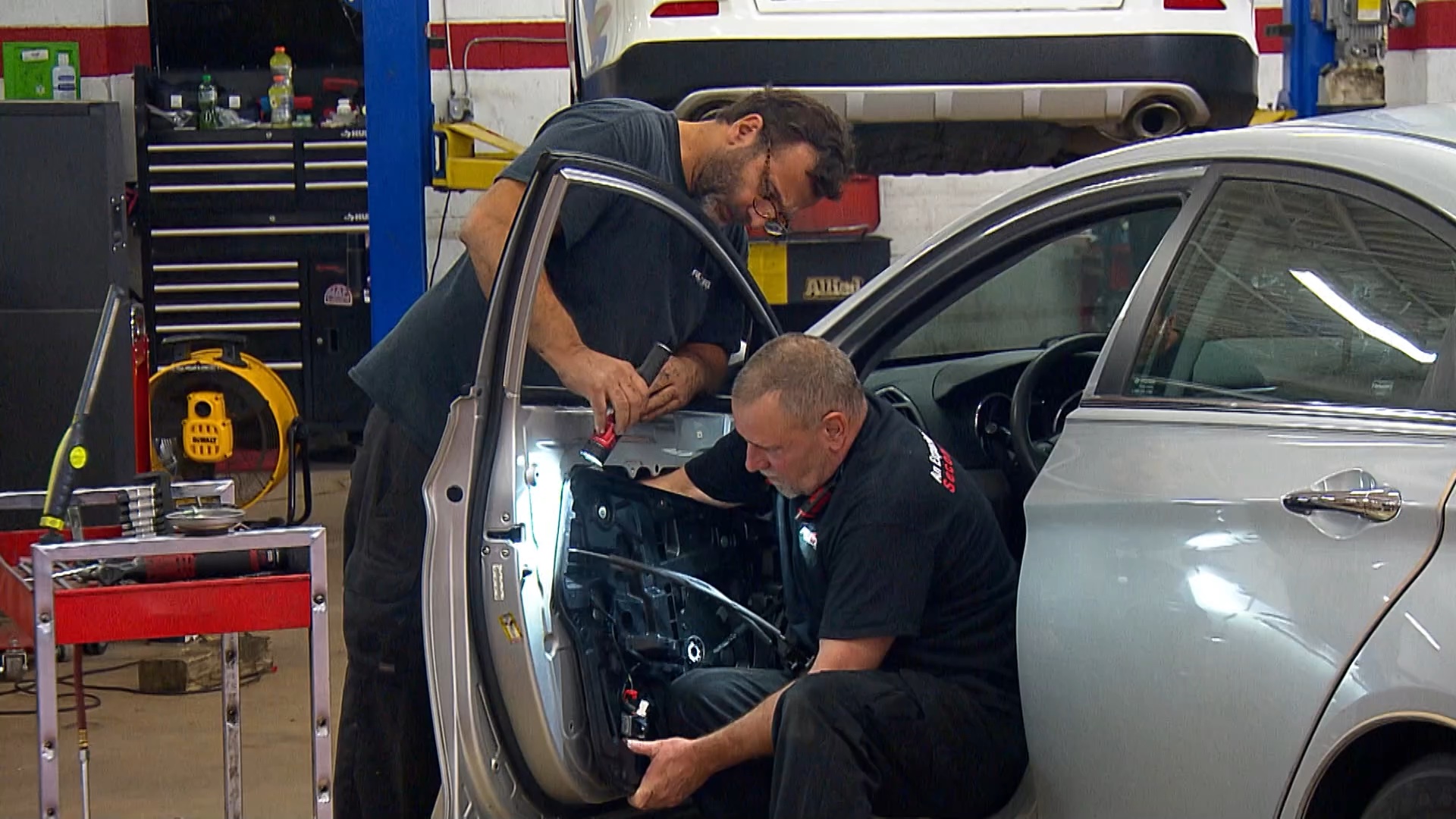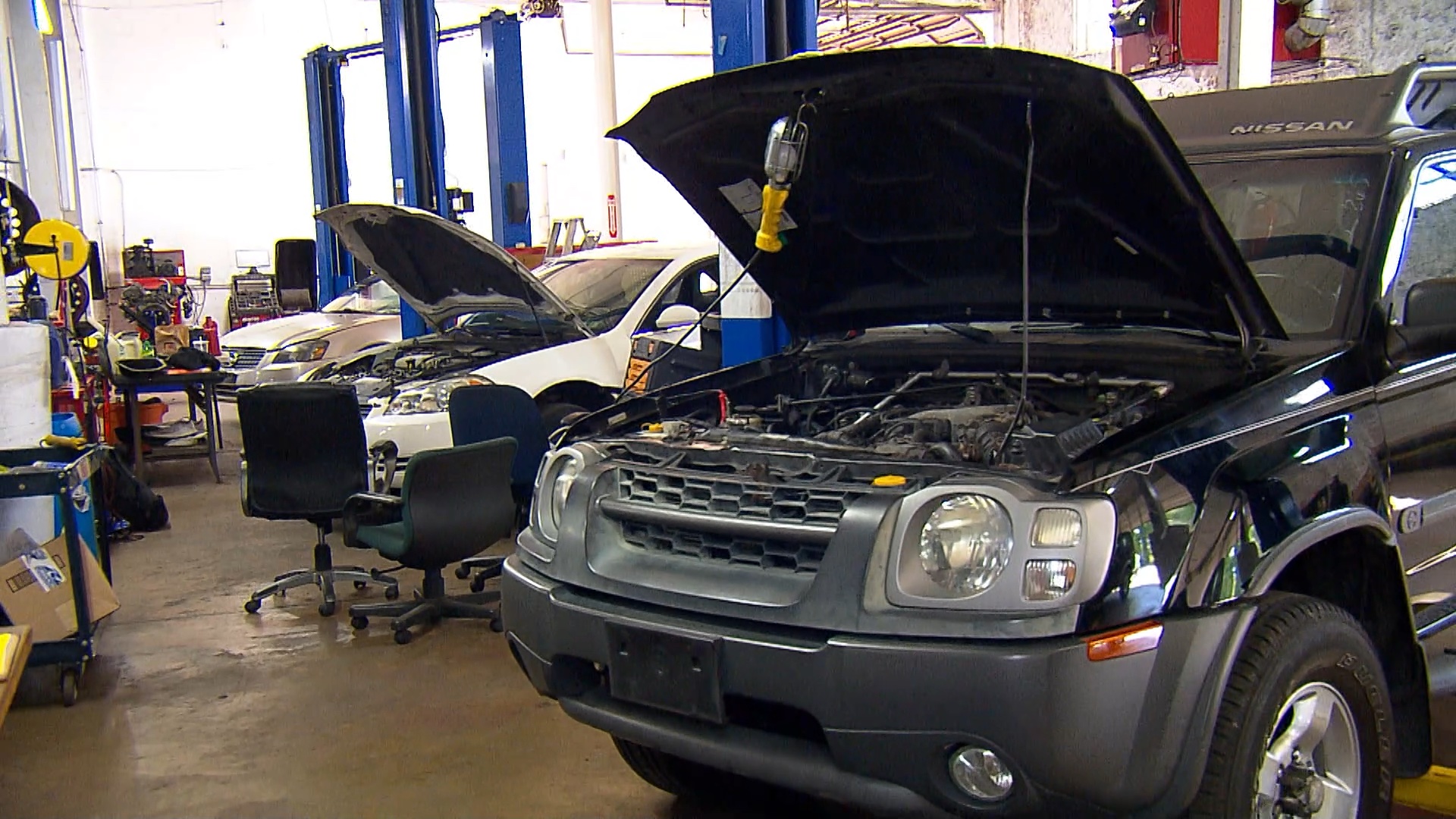Vehicles for Change
Ex-Offenders Give Back While Learning to Repair Cars
by Stephanie HartIt’s a fact that today’s cars are far more complex than they were even a decade ago. And with that has come an almost exponential growth in demand for trained automotive technicians to keep them up and running. But filling those jobs is a huge challenge. Well, our Stephanie Hart has uncovered a Maryland non-profit organization with a truly unique solution.
STEPHANIE HART: I’m in Halethorpe, Maryland, at Vehicles for Change where ex-offenders are learning how to repair cars. All the cars you see here are donated. Once fixed, they go to low-income families who have no other means of transportation.
Harry West is one of the instructors here. A graduate of Vehicles for Change, he’s now giving back…inspiring future auto techs.
HARRY WEST: I want to spread what I can and, you know, help other individuals, especially guys like myself that have been through some things.

STEPHANIE HART: Forming friendships under the hood, while covering a lot of ground.
HARRY WEST: Brake flushes; uh, we do suspension work; uh, brakes, alignments, tire rotations, tire replacements, tire repairs…
JEROME HENLEY: This actually gives you a work—a work environment which you can expect out in the real world, getting hired at a shop.
STEPHANIE HART: Statistics reveal it costs $50,000 a year to keep someone incarcerated. The price tag to train a future auto tech in this program? $18,000.
MARTIN SCHWARTZ: That’s a onetime expense that we don’t have to spend year over year, and now we have an individual who is not committing crimes, who is paying taxes who is taking care of their family.
STEPHANIE HART: After four months of hands-on and classroom learning, the men and women here graduate and they go on to work at auto dealerships and auto repair shops, filling a huge need for trained auto technicians nationwide.
The National Auto Dealers Association reports nationwide there are 76,000 new openings for auto techs each year. 37,000 of them are never filled, mostly because there aren’t enough trained auto techs out there. Since 2015, Vehicles for Change has been working to bridge the gap. It’s new virtual reality auto mechanic training program helps.
MARTIN SCHWARTZ: In virtual reality you put a headset on and use a handheld device and you go into a virtual garage and you do an oil change, and you do a brake job, and you learn how to use a lift and a tire changer and tire balancer.
STEPHANIE HART: Beyond that, the goal is to launch hundreds of virtual reality training programs nationwide while simultaneously launching twenty new brick and mortar locations over the next five years.
But in order to flourish, it needs cars for the program; and given today’s used car market, it’s more difficult than ever before. Data shows car donations change lives. According to Vehicles for Change, after receiving a car, 75-percent of owners got better jobs and/or raises of about $7,000.
MARTIN SCHWARTZ: When these guys work on a car and then they see that car go to a low income family, the pride that they have because they look at that and say “you know what? If my mom had a car maybe I wouldn’t have ended up incarcerated; maybe I would of had different opportunities that I didn’t have because she couldn’t get home from work on time, she couldn’t take me to athletics, she couldn’t take me to after school programs; and I never had those opportunities.”
STEPHANIE HART: Training here, gives them a second chance and statistics show graduates get jobs and go on to be successful.
MARTIN SCHWARTZ: We actually have some folks who are currently making over $100,000 a year just four years out of the program. So, there’s an opportunity in this field to make a significant amount of money.
STEPHANIE HART: Reshaping destinies along the way.










